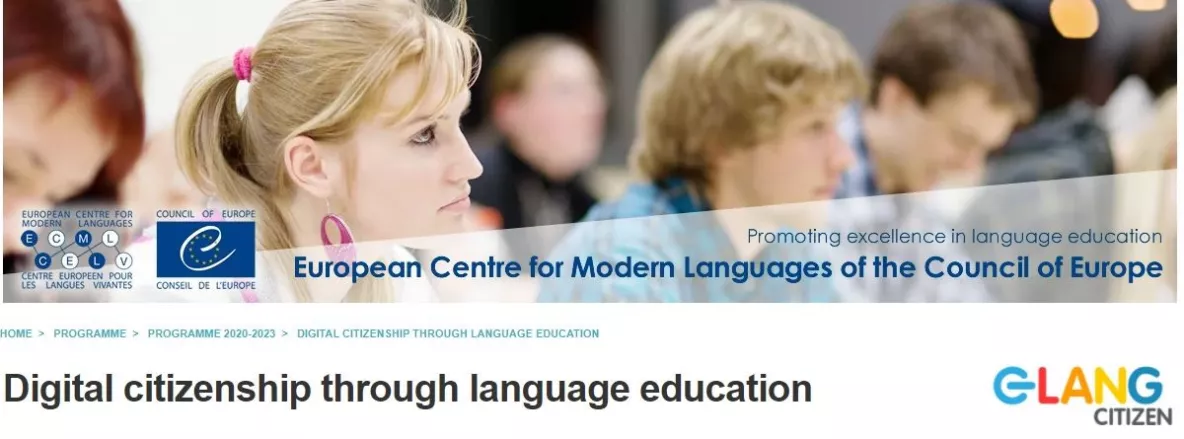
Since early 2020, Catherine Jeanneau, coordinator of the Language Learning Hub, School of Modern Languages and Applied Linguistics, is part of a team of experts (led by prof Christian Olivier, University of La Réunion, France) working on the question of digital citizenship.
This group received funding from the ECML (European Centre for Modern Languages of the Council of Europe) to take part in their 2020-2023 Programme: Inspiring innovation in language education: changing contexts, evolving competences.
The e-lang citizen project seeks to help learners become digital citizens and develop the capacity to use digital media critically, creatively and autonomously in several languages. Indeed, the digital democratic society, which is characterised by a high degree of cultural and linguistic diversity, requires new skills and attitudes from citizens. It requires the development of multiple literacies (digital, plurilingual, intercultural) to be a citizen who is aware of the challenges that digital technologies and plural societies bring; a responsible and autonomous participant in the pluralistic digital society; creative and a player in the digital world.
This project is a pioneering initiative for the development of digital citizenship through language education. It meets the request of the Council of Europe's "Education for Digital Citizenship" project to develop concrete activities in the different school subjects. A conceptual and educational reflexion on digital citizenship and language learning and teaching will be completed by the development of concrete tasks to carry out online. These tasks provide a motivating way to develop language competence and digital citizenship by allowing students to (inter)act "for real" online. Learners are indeed led to act as citizens and to reflect critically on their experience.
For more information on the project, check the project site and follow the hashtag #ECML_elang on Twitter